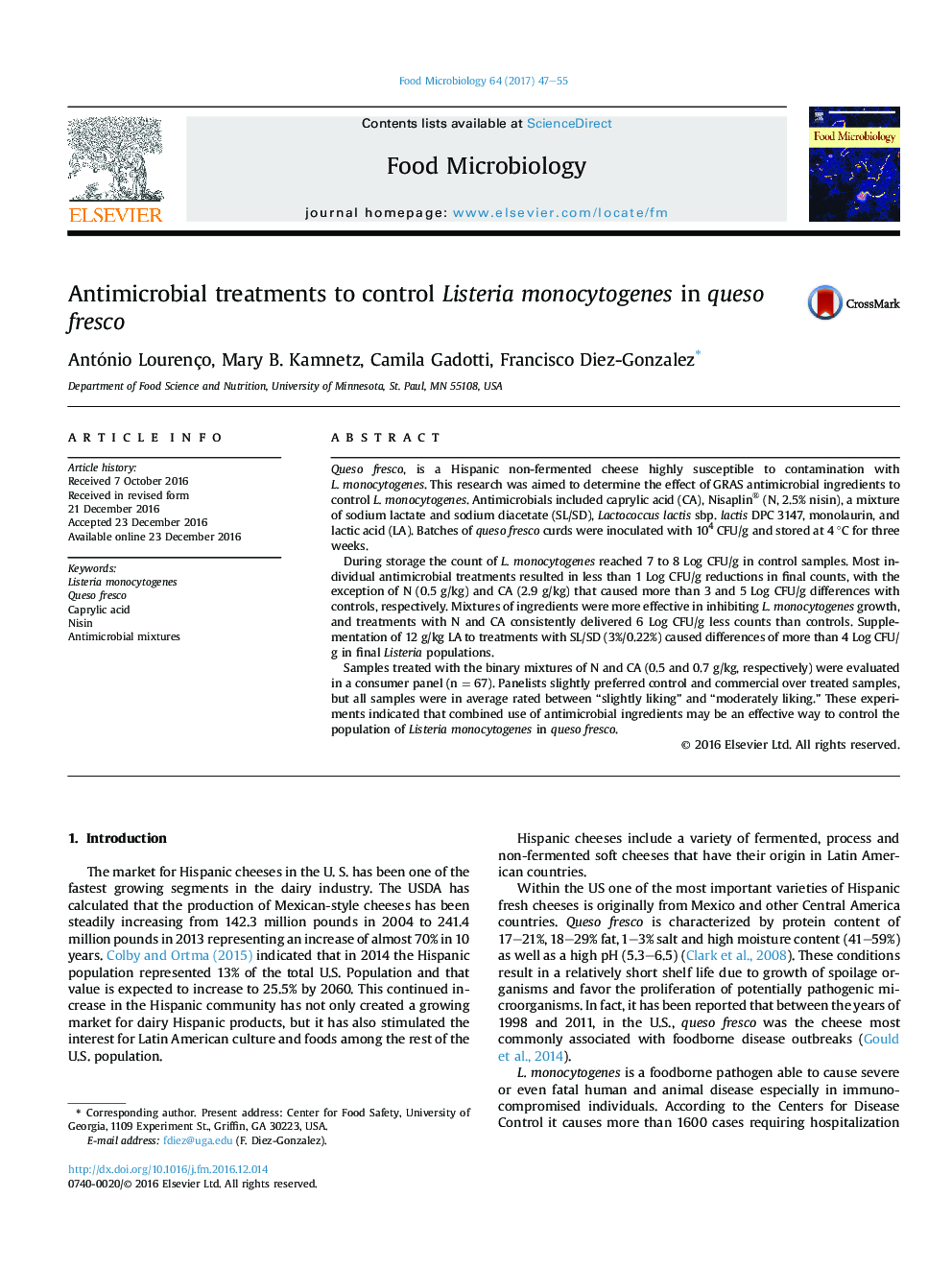| Article ID | Journal | Published Year | Pages | File Type |
|---|---|---|---|---|
| 5740208 | Food Microbiology | 2017 | 9 Pages |
â¢Control of Listeria monocytogenes in Hispanic fresh cheese using antimicrobial ingredients is proposed.â¢Individual antimicrobial ingredient treatments had limited effect on L. monocytogenes growth.â¢Combinations of two or more ingredients inhibited growth to more than 3 log CFU/g Listeria counts compared to control.â¢Mixed ingredient treatments that included nisin and caprylic acid had a marked reduction of L. monocytogenes growth with little impact on consumer acceptability.
Queso fresco, is a Hispanic non-fermented cheese highly susceptible to contamination with L. monocytogenes. This research was aimed to determine the effect of GRAS antimicrobial ingredients to control L. monocytogenes. Antimicrobials included caprylic acid (CA), Nisaplin® (N, 2.5% nisin), a mixture of sodium lactate and sodium diacetate (SL/SD), Lactococcus lactis sbp. lactis DPC 3147, monolaurin, and lactic acid (LA). Batches of queso fresco curds were inoculated with 104 CFU/g and stored at 4 °C for three weeks.During storage the count of L. monocytogenes reached 7 to 8 Log CFU/g in control samples. Most individual antimicrobial treatments resulted in less than 1 Log CFU/g reductions in final counts, with the exception of N (0.5 g/kg) and CA (2.9 g/kg) that caused more than 3 and 5 Log CFU/g differences with controls, respectively. Mixtures of ingredients were more effective in inhibiting L. monocytogenes growth, and treatments with N and CA consistently delivered 6 Log CFU/g less counts than controls. Supplementation of 12 g/kg LA to treatments with SL/SD (3%/0.22%) caused differences of more than 4 Log CFU/g in final Listeria populations.Samples treated with the binary mixtures of N and CA (0.5 and 0.7 g/kg, respectively) were evaluated in a consumer panel (n = 67). Panelists slightly preferred control and commercial over treated samples, but all samples were in average rated between “slightly liking” and “moderately liking.” These experiments indicated that combined use of antimicrobial ingredients may be an effective way to control the population of Listeria monocytogenes in queso fresco.
